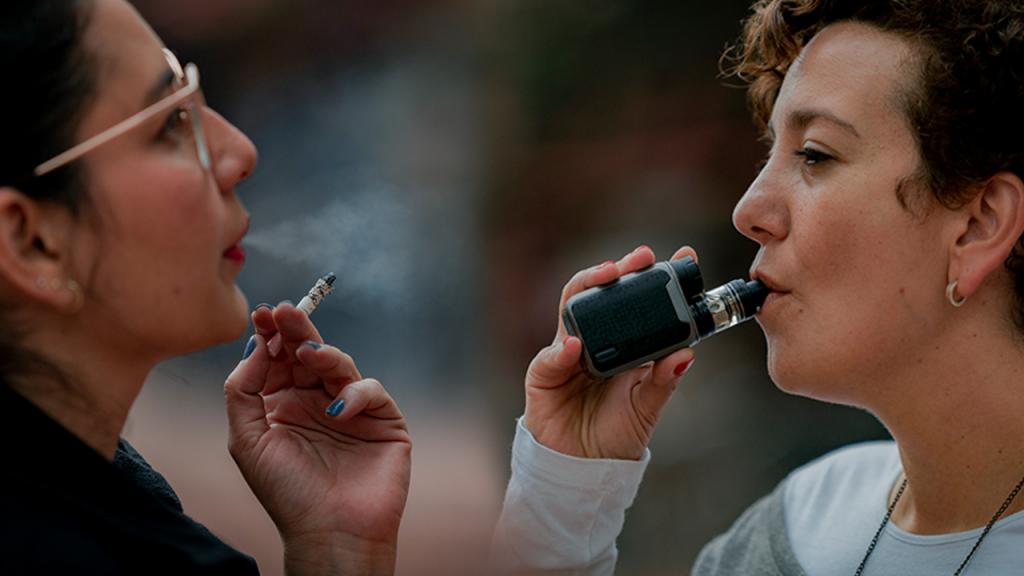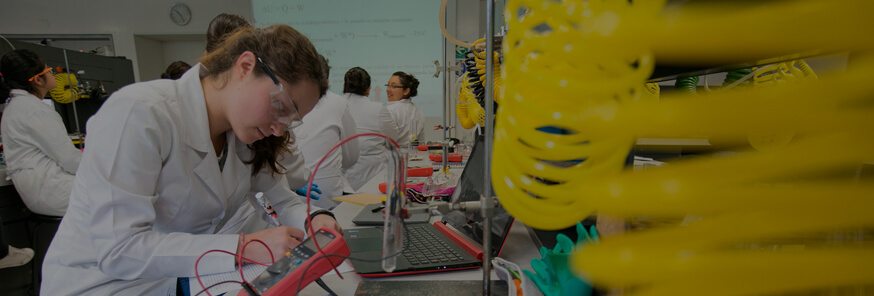
Cigarettes vs. vaping. The debate between individual freedom and the benefits of vaping or the social damage it causes
22/11/2019
“Vaping is equally as dangerous as smoking or even more dangerous”, Luis Jorge Hernández, professor of medicine.
The use of vaporizers or e-cigarettes is ever more common among young people and is a risk for public health because, according to experts, it provides a false sense of security.
Luis Jorge Hernández, professor in the Faculty of Medicine at the Universidad de los Andes and public health expert assures that “people think that vaping is less harmful than a cigarette because it is smoother and doesn’t have the same risks, but this is not true. Vaping is equally as dangerous as smoking or even more so”.
It is called vaping because a vapor is inhaled that mixes flavored chemical substances or nicotine. Sometimes the mix can contain psychoactive substances including other toxins. All of these are irritants for the airways. When the substance is inhaled, the vapor penetrates the bronchial tree, and, according to Hernández, “the inhalation is similar to be being injected straight into a vein”.
The first cases of severe lung disease associated with vaporizers and e-cigarettes have already been detected. For example, the Centers for the Control and Prevention of Diseases (CDC) alerted that 94 patients had been reported between June 28 and August 15 this year with signs of serious lung condition related to the use of these devices.
Tatiana Andia, professor of sociology at the Universidad de los Andes, who has a PhD in sociology from Brown University, assures that vaping does not mean that the person “smokes less”. In fact, sometimes they smoke more because they “smoke more cigarettes, but because it doesn’t smell, it is less socially stigmatized”.
 All the bans, in terms of smoking in closed spaces, should also be extend to vaporizers.
All the bans, in terms of smoking in closed spaces, should also be extend to vaporizers. 
Tatiana Andia
Sociologist
The study Making knowledge legitimate: transnational advocacy networks campaigns against tobacco, infant formula and pharmaceuticals, undertaken by Tatiana Andia and Nitsan Chorev, gathered evidence about how, over time, the social perception of the cigarette changed and how the scientific evidence about the harmful effects of cigarettes had an influence on this transformation.
In the 1950s, cigarettes were socially accepted, and the role of advertising was key. Smoking was allowed in planes, offices, and classes. They were even socially accepted to the point where pregnant women smoked.
There was deceptive advertising which suggested that, for example, cigarettes made you thin. There were also other affirmations accompanying cigarette iconography that showed it as a cool and sophisticated habit. Later, social health movements and the families of people who had suffered from cancer helped the scientific evidence of the harmful effects of tobacco develop.
One of the biggest achievements, on a global level, was to allow smokers to make a conscious decision based on having full knowledge of the harmful effects that cigarette smoking has on their health. The vaporizer once again opens a space for ‘smoking’ to be socially acceptable along with the effects on health and the undesired social effect.
Vaporizers have reinvented themselves, not only in terms of advertising. They have gone outside the globally established regulations. According to professor Andia, it was “An excellent technological and advertising idea. All the bans, in terms of smoking in closed spaces, should also be extend to vaporizers if we want consumption not to increase as I think that the vaporizer managed to find a regulatory loophole”.
The use of the vaporizer brings back the debate between individual freedom and the benefits of vaping or the social damage it causes. Inhaling smoke or vapor irritates the airways, can cause bronchoconstriction, affects the cardiovascular system, and can lead to death. Vaping is no less dangerous than the cigarette and smoking is harmful for health. Don’t fall for it.
To read the complete study Making knowledge legitimate: transnational advocacy networks' campaigns against tobacco, infant formula and pharmaceuticals by Tatiana Andia and Nitsan Chorev, click on the following link:
Related news

27/08/2020
Through true/false questions, expert Luis Jorge Hernández clears up some of the myths created in the midst of this pandemic.

28/07/2020
A project that contributes to improving women who have survived breast cancer’s quality of life through physical activity and psychosocial support.

10/02/2020
For forty years, the dangers of asbestos have been widely known internationally. However, in Colombia, it was not possible to convince several congres
Otras noticias
- The first metabolomics center in Colombia was inaugurated
- Why is it extremely important to prohibit the use of asbestos in Colombia?
- Synthetic drugs turn zombies from fiction into reality
- A project that uses fish to study Chagas disease has been presented with an award
- Los Andes and Stanford are partners carrying out research into health in Latin America
Share











